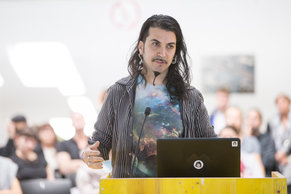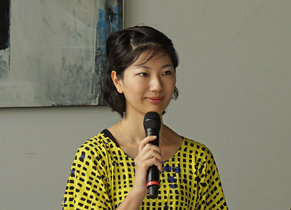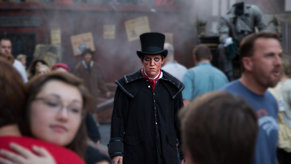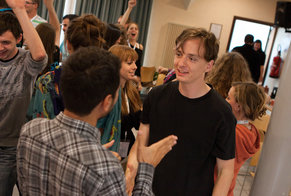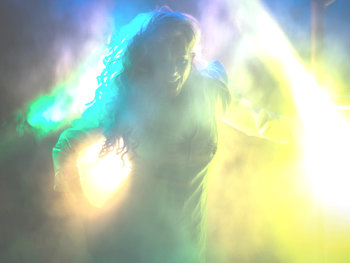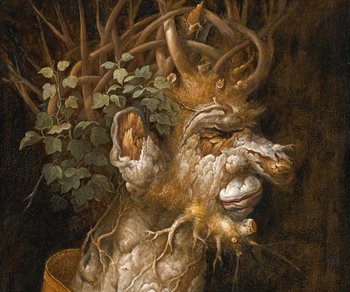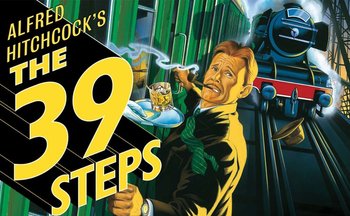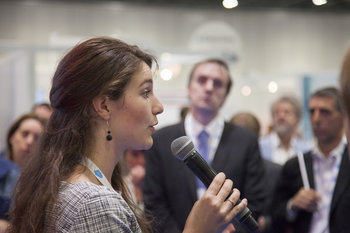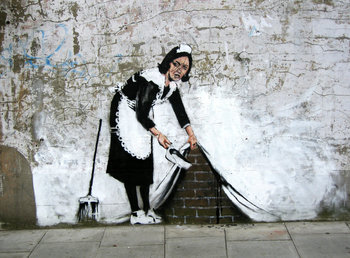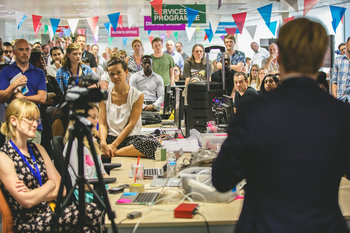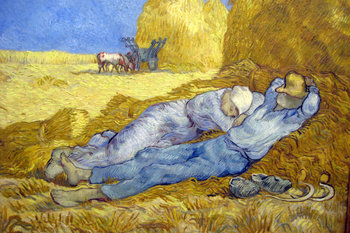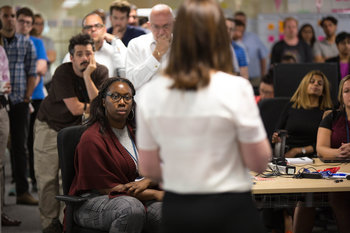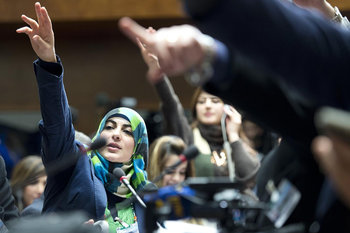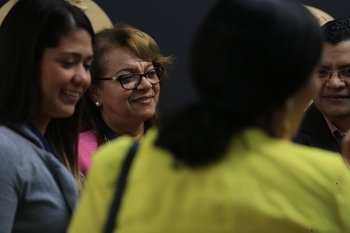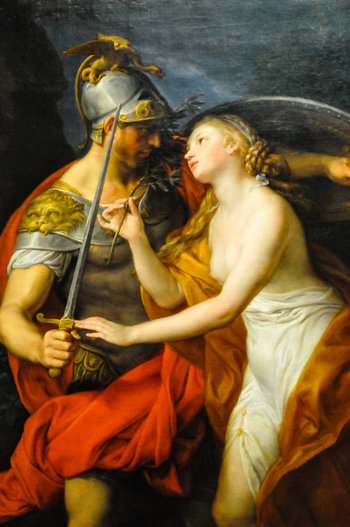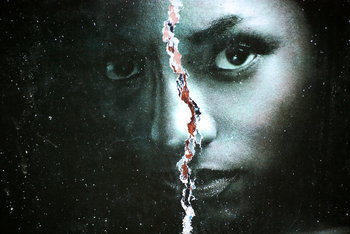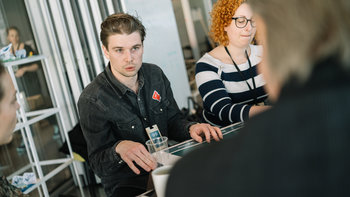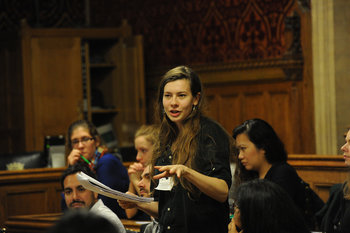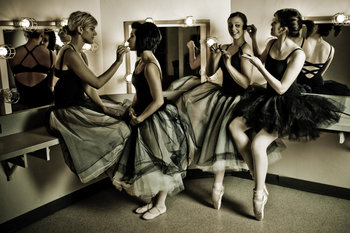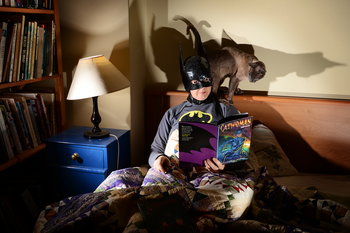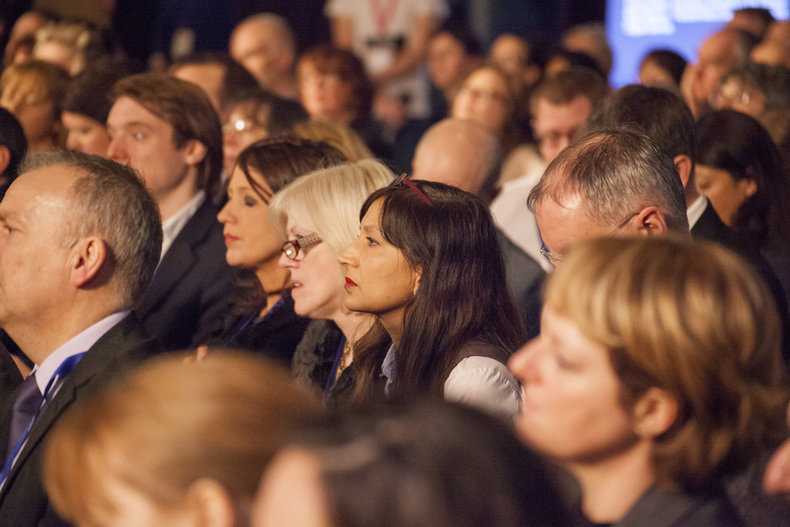
Quotes
Quotes and misquotes that are widely communicated as bits of wisdom quickly become cliche. For example, Franklin D. Roosevelt's "...the only thing we have to fear is fear itself..."Memes
A meme is a catchphrase or media item that is widely communicated via word of mouth such as social media. These are often humorous, absurd and dark. Successful memes quickly become cliche as they are shared over and over again with digital tools such as social media, messaging, chat and message boards.Catchphrases
Catchphrases are short memorable expressions that get widely used beyond their initial scope. For example, "Where's the beef?" was a popular catchphrase that originated in an advertisement for the fast food chain Wendy's. This was used as an all-purpose phrase for several years until it became a painful cliche.Truisms
Truisms are words of advice that are commonly viewed as true or helpful. These begin as brilliant statements by their authors that are then repeated ad nauseam. For example, "don't burn your bridges."Buzzwords
Buzzword is a term for any jargon that becomes remarkably popular in an industry, profession or domain. These often give a name to a useful concept. By definition, buzzwords are overused to the point of becoming cliche. For example, "best practice" is a management buzzword.Thought-Terminating Cliche
A thought-terminating cliche is the use of catchphrases, truisms and jargon as a substitute for thinking. This is basically an attempt to sound intelligent by repeating phases you consider to be insightful or trendy.A: How can we increase revenue?
B: We need to follow best practices and also start thinking out of the box to innovate to disrupt markets and create a holistic customer experience.
B: We need to follow best practices and also start thinking out of the box to innovate to disrupt markets and create a holistic customer experience.
Facts
Facts can become cliche if they are overused. This often occurs with a fact that is initially amazing until it gets repeated so much that it becomes common knowledge. For example, "Did you know that 71 percent of the Earth's surface is water?"Plots
Plots to stories such as film and fiction that have been repeated too many times such that they become overly predictable. For example, boy meets girl, boy loses girl, boy regains girl is a common plot for romantic comedies.Plot Devices
Plot devices are a method for moving a story forward. Some of these are considered cliche either because they have been overused or because they provide a convenient escape for the author from an unsolvable dilemma. For example, a character waking up and realizing that part of a story was a dream is considered cliche.Themes
As with plot, the general theme of a story can be cliche. For example, good vs evil stories that paint all characters as either completely good or completely bad with nothing in-between.Humor
Humor can be cliche when jokes are repeated or patterns of jokes reused too often. It is also common for humor to be based on an alteration of a well known cliche. For example, Groucho Marx's "I never forget a face, but in your case I'll be glad to make an exception."Analogy
Overused analogies such as the metaphor "life is a rollercoaster, it has ups and downs. "Hyperbole
A hyperbole is an exaggeration that is meant to be obvious. These can be overused to become cliche. For example, "I told you a million times ..."Imagery
Imagery is language designed to create a visual picture. This is common in literature and song lyrics. Imagery is cliche when it is unoriginal such that it sounds familiar at first read. For example, "waves were crashing all around ..."Sarcasm
Sarcasm is an insincere remark that is intended to provoke. This is considered a low form of wit because it is usually easy to think of something sarcastic to say. Sarcasm that is unoriginal in any way can be considered cliche. For example, "wow, did you think of that yourself, smart!"Logic
Common patterns of logical argument such as "you can't have your cake and eat it too."Emotion
Common patterns of emotional argument such as "it's my life."Appeal to Authority
An appeal to authority is a type of weak argument or fallacy that claims the support of an authority without any actual reference. This can sound extremely cliche such as "most scientists say ..." or "experts agree ..."Kairos
Kairos an argument based on timeliness. These are based on a few patterns that tend to sound cliche such as "these days ..." or "seize the day!"Irony
Irony is the use of inconsistencies to convey meaning. Most verbal irony is based on figures of speech that are likely to become cliche. For example, "clear as mud."Idioms
Idioms are phrases that are absurd if taken literally such that you have to know them to understand them. These almost always sound a little cliche. For example, "bite the bullet" or "so far so good."| Overview: Cliche | ||
Type | ||
Definition | Intelligent, funny or useful phrases or patterns of language that get overused to the point that they are perceived as unoriginal, boorish and irritating. | |
Related Concepts | ||

